BEST
WISHES!:
GUIDELINES FOR
GIVING & GETTING
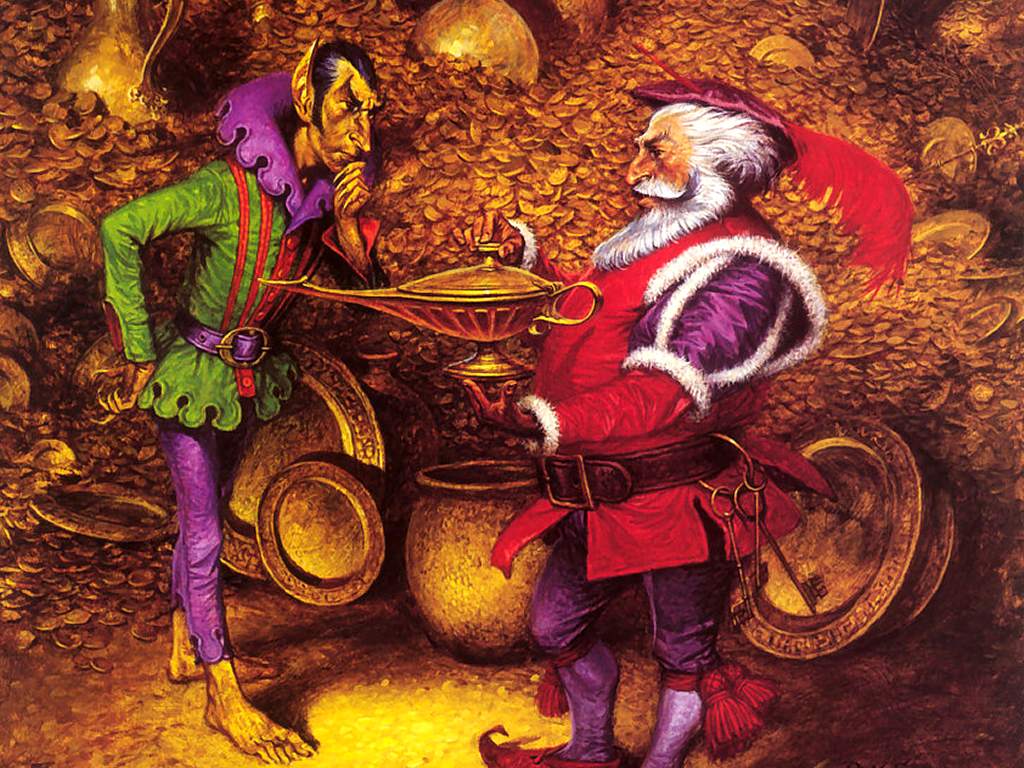
by Gary Snyder
| Wish (PH) | Best Wishes! | Wishing Makes It So | The Lowdown on Wishes (AD&D) | If You Wish Upon A Star... |
| Dragon | - | Spells | - | Dragon |
BEST
WISHES!:
GUIDELINES FOR
GIVING & GETTING

by Gary Snyder
|
|
|
|
|
|
|
|
|
|
|
|
The General Principles of Wishes
I:Wishes
are 9th-level M-U spells and are limited in power accordingly;
Limited
Wishes are 7th-level spells which are even more limited.
II: Wishes cannot change
what has already happened,
but they can be used to alter or negate
the result of some prior happening.
III: Wishes cannot directly
affect that which will happen,
except in the sense that everything that
will happen is a direct result of what is and has been happening.
IV: Wishes are bound by the laws under which they themselves are brought about and used.
V: Wishes have no authority and no power over the abstract, the insubstantial, or the non-concrete.
VI: Wishes will always act in the simplest manner possible while abiding by the wording of the Wish itself.
VII: Wishes are general-purpose
spells,
and as such may be used voluntarily in
a number of ways,
with varying chances for success.
VIII: Wishes will rarely achieve more than one end, and never more than two.
IX: Wishes will fulfill,
to the limits of their power,
not only the desired end but the means
by which that end is brought about.
X: Wishes are impartial, objective and consistent.
The Wish
and Limited Wish spells are an
important part of the ADVANCED DUNGEONS & DRAGONS™
game,
and sooner or later every player and DM
will be confronted with the question of how to make a Wish or how to fulfill
one.
The PH
describes these
spells in the vaguest of terms — a neces-
sary condition, because any attempt to
define the Wish concept naturally in-
volves limiting the scope and power of
the Wish to the characteristics described
by the definition.
It is up to individual DMs and players
to define and interpret the Wish
&&
Limited Wish in
such a way that the USE of
those spells in a campaign does not have
an unfair || inappropriate effect on play.
The ten General Principles of Wishes,
presented and explained in the text
which follows, represent one possible
way of establishing “ground rules” for
the use of Wish spells which can be used
to the benefit of DM and players alike.
The General Principles below do not
narrow the power and scope of a Wish to
the point where a DM can quote a Gen-
eral Principle as a self-explanatory result
of a Wish. The intent of the Principles
is
to encompass broad concepts which are
relatively easy to apply in any specific
case which might arise. The stricture
set
down by a certain Principle may help to
determine whether a Wish has any effect
at all in a certain situation, or, if
it is
effective, what degree of success is at-
tained by the wisher in achieving
the de-
sired end by the desired means. Usually,
a Principle will be no help at all in
deter-
mining exactly how a Wish ought to be
worded or exactly how it ought to be
fulfilled.
The Principles are meant to apply to
Wish and Limited Wish spells, wishes
acquired from rings, scrolls, swords,
rel-
ics and artifacts, and wishes obtained
from efreet and noble djinn. They do not
(necessarily) pertain to “wishes” grant-
ed by devils,
demons
or gods, which are
actually forms of Divine (or demoniac
or
diabolic) Intervention.
Wishes vs. Divine Intervention
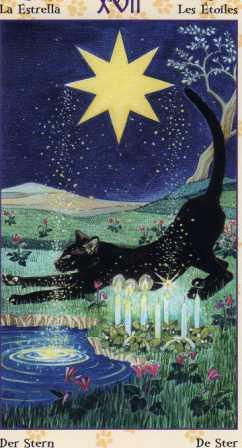
A Wish or Limited Wish is simply a
magic spell of a specific level which
can
be used as a general-purpose method to
achieve some desired result. Any Wish
is
limited in power and bound by the laws
of the universe in which it is employed.
By contrast, Divine
Intervention is an
action of a deity or god, just as diabolic
and demoniac interventions are actions
of devils and demons respectively. While
these three types of beings are also
bound by laws which govern their envi-
ronments, their power in their own realms
and in those realms not specially desig-
nated as belonging to another similar
be-
ing is nearly unlimited. An act of inter-
vention can actually change that which
has already occurred, or can directly
and
definitively alter the course of future
events — things which a Wish cannot
accomplish.
The General Principles of Wishes are
not designed to apply to intervention
by
a deity, demon or devil. The granting
of
favors by such beings cannot be gov-
erned by any general rules, since each
instance of intervention may produce
drastically different results depending
upon the preference or the inclination
of
the deity at that certain time.

THE GENERAL
PRINCIPLES
OF WISHES
I
WISHES ARE 9TH-LEVEL MAGIC
SPELLS AND ARE LIMITED IN POWER
ACCORDINGLY; LIMITED WISHES
ARE 7TH-LEVEL SPELLS WHICH ARE
EVEN MORE LIMITED.
There is no such thing in the AD&D™
rules as a 10th-level spell, or any form
of
magical energy which is more potent
than a 9th-level spell. If a Wish was
un-
limited in power, it would be theoretical-
ly possible for it to have the energy
of a
10th-level spell — but then the Wish spell
itself would have to be considered a
10th-level spell, and that is a contradic-
tion. Using the same reasoning, a Limit-
ed Wish is limited in scope and power
to
what can be accomplished with the
energy of a 7th-level spell. In addition
to
these general limitations, there are spe-
cific instances cited in the AD&D
rules
where the use of a Wish is impossible
or
ineffective.
II
WISHES CANNOT CHANGE WHAT
HAS ALREADY HAPPENED, BUT THEY
CAN BE USED TO ALTER OR NEGATE
THE RESULT OF SOME PRIOR
HAPPENING.
If, for example, someone has been dis-
integrated, nothing short of divine inter-
vention can change that fact: he has
been disintegrated. The result of this
oc-
currence, however, can be nullified by
a
Wish which causes the body of the victim
to be reintegrated (see Principle
VIII).
III
WISHES CANNOT DIRECTLY AF-
FECT THAT WHICH WILL HAPPEN,
EXCEPT IN THE SENSE THAT EVERY-
THING THAT WILL HAPPEN IS A DI-
RECT RESULT OF WHAT IS AND HAS
BEEN HAPPENING.
A Wish has no real power to affect any-
thing except at the precise moment it
is
uttered (see Principle II).
Therefore, a
Wish for a specific occurrence or situa-
tion to come about in the future — but
not at the time the Wish is actually made
— would have the effect of placing the
wisher in circumstances at the present
time that would most possibly bring
about the desired end after the passage
of the intervening time, but would not
and could not constitute a guarantee
that the desired event will happen.
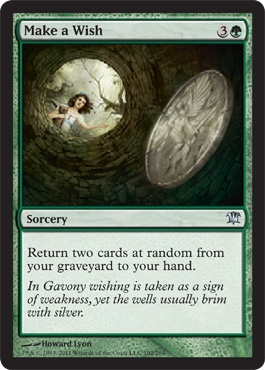
IV
WISHES ARE BOUND BY THE LAWS
UNDER WHICH THEY THEMSELVES
ARE BROUGHT ABOUT AND USED.
In most AD&D
universes, this will mean
that a Wish cannot make something out
of nothing or vice versa. For the creation
of food, water, soft goods and other such
items, raw materials (carbon, oxygen,
hydrogen, nitrogen) are usually availa-
ble in abundance. However, the creation
of a certain amount of iron, copper, gold,
platinum, or other valuable materials
is
much more difficult because of the rela-
tive scarcity of such items. In any event,
the creation of a quantity of material
which is greater in mass than the spell-
caster or wisher will be considered much
more complex and energy-draining than
the alternative of teleporting the wisher
to the desired substance or vice versa
(see Principle VI). For
purposes of this
determination, all magical items and all
living beings (with the exception of the
character using the Wish) are consider-
ed to be of infinite mass; that is, the
crea-
tion of such items by a Wish is essentially
impossible, since the energy of a Wish
is
not also infinite.
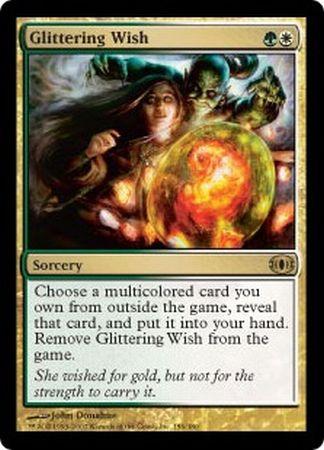
V
WISHES HAVE NO AUTHORITY AND
NO POWER OVER THE ABSTRACT,
THE INSUBSTANTIAL, OR THE NON-
CONCRETE.
In particular, a Wish cannot grant ow-
nership, titles, or other stations which
require an authority to confer them upon
someone else. Nor can they remove
such titles and privileges, either from
the
wisher or others. If a Wish deals wholly
or primarily with abstract, intangible
considerations, there can be no certain-
ty that the Wish will achieve the desired
end; at best, the Wish will put the wisher
into circumstances which have the great-
est possibility of achieving that end
(see
Principle III).
VI
WISHES WILL ALWAYS ACT IN THE
SIMPLEST MANNER POSSIBLE WHILE
ABIDING BY THE WORDING OF THE
WISH ITSELF.
If a desired end may be accomplished
with a lower-level spell than the wisher
had in mind, for instance, and the means
to achieve that end was not fully speci-
fied in the Wish, then the lower-level
spell will be used. In general, the more
mass or energy involved in the fulfill-
ment of a Wish, the more complex the
undertaking will be. “Creation” (see Prin-
ciple IV) of a substance
or material is
more difficult than molecular rearran-
gement which might accomplish the
same purpose. Molecular rearrangement
is more difficult than destruction, des-
truction is more difficult than the tele-
portation of something, and teleporta-
tion is more difficult than simple en-
lightenment or knowledge given to the
wisher.
VII
WISHES ARE GENERAL-PURPOSE
SPELLS, AND AS SUCH MAY BE USED
VOLUNTARILY IN A NUMBER OF
WAYS, WITH VARYING CHANCES FOR
SUCCESS.
To employ this principle properly, it is
necessary to determine at what level of
power the magic operates to cause the
fulfillment of a particular wish. If the
me-
thod involves the magic of a known spell,
the level of the magic is easily deter-
mined from the rules; new spells or other
types of magic will have to be compared
to existing spells and magic by the DM
before determining the level of magic
in-
volved. Chances for success (complete
fulfillment of the wish) depend upon the
type of Wish (magic-user or clerical)
and
the level of magic involved, according
to
the following chart:
Wish Limited Wish
| Spell
level |
M-U | Cleric | M-U | Cleric |
| 1-4 | 100 | 100 | 100 | 100 |
| 5 | 100 | 100 | 100 | 75 |
| 6 | 100 | 90 | 80 | 50 |
| 7 | 100 | 75 | 50 | - |
| 8 | 90 | - | - | - |
| 9 | 75 | - | - | - |
Often, but not always, when a spell
level lower than the Wish itself is used
to
achieve the desired end, the manifesta-
tion of the magic will be similar to the
spell in question but in an improved form
(for instance, teleportation with no
chance for error) because of the extra
power of the Wish spell itself above and
beyond the energy needed to make the
wish come true. Spells which are “im-
proved” in this manner are generally
those of levels where the chance for suc-
cess is 100%.
VIII
WISHES RARELY WILL ACHIEVE
MORE THAN ONE END, AND NEVER
MORE THAN TWO.
All spells are formulated to achieve a
specific purpose, whether it be to neu-
tralize poison in some creature, charm
a
hostile group of opponents, or restore
life in an individual. It is not beyond
the
power of a Wish to reintegrate a charac-
ter and even restore life to his body
(con-
stitution check applicable); even though
those are two distinctly separate acts,
they both contribute to the fulfill-
ment of a specific purpose. In contrast,
it
would not be possible for a single Wish
to teleport a group of characters out
of
the middle of a melee to a place of safety,
accompanied by all the opponents’ trea-
sure (which, at the time of the Wish,
is
still in the possession of the opponents).
In any case except the most simply
worded wishes, the DM will have to
weigh the Wish in terms of how many
ends it is designed to achieve. For ex-
ample, how many dead characters can a
Wish bring back to life all at once? The
answer varies: If the deaths were all
due
to a single incident such as a cave-in,
or
if they all occurred within the same short
period of time during melee, a Wish
would probably be permitted to save all
the victims, since only the effect of
one
short span of time is being altered, and
in
that respect only one end is being
achieved. On the other hand, if half of
a
group of characters died in a cave-in
and
the other half in a run-in with an umber
hulk, only one group of victims would
be
able, to be brought back to life with
a
single Wish — altering one occurrence,
not two, and achieving only one end in-
stead of two distinctly different pur-
poses.
IX
WISHES WILL FULFILL, TO THE LIM-
ITS OF THEIR POWER, NOT ONLY THE
DESIRED END BUT THE MEANS BY
WHICH THAT END IS BROUGHT
ABOUT.
The wording of this Principle implies
that a Wish spell has reasoning power
of
64
its own which enables it to make a
“choice” between various methods of
achieving a desired end, and perhaps
even distort or depart from the wording
of the wish. This is NOT so!
A good example of the improper dis-
tortion of a Wish is the character who
wishes for a demon to serve him as a
slave — and gets sent to the Abyss
to
pick one out. Some DMs consider this a
fair interpretation, claiming that it
does
not violate the wording of the wish. While
this may be technically true (depending
upon the actual wording), such action
is
in violation of the nature of a Wish.
It has been pointed out in earlier Prin-
ciples that a Wish may be fulfilled in
one
of several different ways. In all cases,
the
Wish will be fulfilled in such a way that
the end result is achieved as desired,
and
in the manner which it could reasonably
be expected to be achieved. One of the
biggest advantages of a Wish is its flexi-
bility, but this is only an advantage
as
long as the DM and the players all use
common sense and fairness in the word-
ing and fulfillment of a desire.
X
WISHES ARE IMPARTIAL, OBJEC-
TIVE AND CONSISTENT.
If a Wish works in a certain way in a
certain situation, it should always work
in the same manner in identical situa-
tions in the future — as long as the set
of
circumstances directly involved in the
Wish is the same.
Sometimes it may be a matter of inter-
pretation whether the conditions for a
Wish are identical to the conditions that
existed at a previous time when an earli-
er Wish was used. In any event, if the
general conditions are the same and the
Wish is worded identically to or general-
ly the same as a previous Wish, the
means of achieving an end and that end
itself must be generally the same as they
were for the first Wish.
If a DM is properly consistent in this
fashion, it may become possible for
players to “predict” the effects or the
outcome of making a certain Wish at a
certain time. Players should be permit-
ted to have this knowledge and to be able
to trust in it once they have figured
out
this “law of nature.” Players should also
be aware that the nature of a Wish makes
it impossible to predict any outcome
with certainty. The word “consistency”
in the Principle stated above applies
more to the approach and the motives of
the DM (who grants the wish) than it
does to the actual result of the Wish.
In no case should the DM’s personal
feelings for a player or a character have
any influence on whether a Wish is
granted or how it is put into effect.
Petty
emotions are neither impartial, objective
nor consistent, and have no place in the
implementation of a Wish or in any other
aspect of an AD&D
adventure.
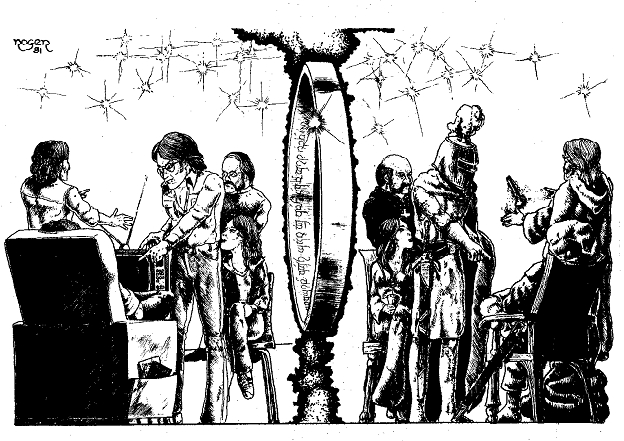
WISHING Makes it so
By Roger E. Moore
| Dragon 49 | - | Wish | - | Dragon |
“I wish that our party was immediately
and safely teleported home to Silver
Mountain Castle, with all our equipment
and treasure.”
With these words, we found ourselves
suddenly transported from the gray stone
treasure vault of the dead demon prince
to the high, friendly halls of our citadel,
the stains of battle on our faces and
weapons and a wealth of riches at our
feet. We were all battered and exhausted,
but as one we cried victory to the
oaken rafters and the heavens above. We
had conquered!
"And now for the experience points,"
said Mark, the game master for the night.
We hastily pulled sheets of scratch
paper from our character folders and
began jotting down the numbers Mark
called out to us. After calculating our
new experience levels, we found my
High Priest, Fritz's Wizard, Cindy's Fighter
and Al's Paladin had each gained a
new level, and everyone else was close
to doing the same. Another half hour was
spent in dividing up the loot, and we
came away with new swords, axes, maces,
wands, armor, and gold and gems. It
was the best treasure we'd ever won, and
we'd for it the entire evening. It
had been close, but we'd played hard
and well, without regard to time. I finished
the last few notes on my High Priest
character and glanced at my watch. I
was stunned to see that it was nearly
11.45; it fell like such a short time
since
we'd started. Time really does fly when
you're having fun, I remember thinking.
To cap off the evening, Carol and Bill
went into the kitchen and came back
with some bottles of wine they said
they’d been saving for “special events”
like this one. They passed out glasses
to
all of us (even to Al, who never drank)
and filled them up with the bright liquid.
“A toast!” commanded Mark, and he
stood up from behind his paper-cluttered
desk. Everyone put their notebooks and
pencils and dice aside and stood, too.
We arranged ourselves in an oval with
Mark at one end and Al, the party leader,
at the other.
“A toast!” commanded Mark, and he
stood up from behind his paper-cluttered
desk. Everyone put their notebooks and
pencils and dice aside and stood, too.
We arranged ourselves in an oval with
Mark at one end and Al, the party leader,
at the other.
“To the ones who dare and win,” said
Mark simply. The glasses rang together
between us, and we drank. The wine
kindled a warm feeling inside me, and
it
grew as I became aware of the bond that
our fantasies had built between us.
In our everyday lives we were just ordinary
people. I worked in a church library, Fritz was a physics student, Carol
and Bill were into real estate, Rhonda
taught botany at a high school, Mark was
a scout troop leader, Cindy was doing
political campaign work and Al was in.
law school. We had good lives, but we’d
sometimes tell each other we wished we
had something more. There was an element
missing in the daily schedules we
setup, and it was the sense that we were
accomplishing something. I think we all
found what we were missing when we
rode our steeds out into the lands of
roleplaying and dreams. We were proud of
being alive, and proud of what we did.
It
kept us going through the rest of the
week.
When we finished the toast we sat
down again and began to talk about the
adventure that evening, the adventures
we’d shared on weekends before, and
anything else we could think of. There
were laughter and smiles, the wine flowed
more freely, and we had long and
ridiculous discussions on whether there
were any witches alive today, what the
Loch Ness monster was, UFO’s, faith
healers, and magic in general. It was
about then that Bill went into the bedroom
and came out with his collection of
magic rings.
His great-grandmother had owned the
rings, he said, sitting down with a dark
wooden box in his lap that had a thin
layer of dust on top. She was reputed
to
have been a witch in the Appalachian
Mountains in the late 1800’s, and she
claimed to have had the power to stop
machinery with a glance and cause men
to do her bidding. Most of us smiled at
that, but Carol went back to the bedroom
and found a photo album that had a
picture of Bill’s great-grandmother. It
was an old brown-and-white shot, faded
and brittle, that showed an old woman
standing beside a backwoods cabin
porch. She held a cane in her left hand
but didn’t appear to be leaning on it.
I
had a feeling that she must have been
a
pretty spry old lady in her later years;
her
face was lined and worn but even the
aged photo revealed lively, dark eyes
and a half-smile on her lips.
The rings had been her pride and joy.
Bill opened the box after cleaning off
the
outside, and the sight drew a chorus of
“oohs” from us all. Light flashed from
rings of gold and silver, adorned with
elaborate carvings and set with diamonds,
rubies, and topaz. Though they
looked somewhat baroque and the stones
were not particularly large, they were
very impressive. Rhonda reached for a
ring with two emeralds in it, looking
questioningly at Bill. He invited us to
pick them out and have closer looks, and
soon we each had a ring and were trying
them on. A game began, sparked by
Fritz, in which we tried to guess what
magical properties our rings had. The
wine was taking effect, and we shrieked
with laughter at the antics that went
on.
I remember with fuzzy clarity standing
by Mark’s desk, looking at the ring I
had
chosen to wear. Unlike the other rings,
mine was a plain gold band with some
illegible script on the inside. I tried
unsuccessfully to read the inscription in
the faint light, and I decided the writing
was in some language other than English.
Otherwise, the band was a simple
thing, but it fit my hand comfortably
and
I was happy with it. On impulse I held
my
hand aloft, fist clenched and ring high,
and said, “I hereby summon forth from
this device an elemental of water!”
Everyone turned to look at me, and
Mark cracked, “We’d be better off with
a
beer elemental.” The gang doubled over
at that one. I didn’t laugh, though, being
interested in the way the ring seemed
to
shine when the light wasn’t on it. Another
thought occurred to me, and unseen
by the group (who was watching Mark
act like a beer elemental) I tried something
else. I raised my fist again and said,
quietly and mostly to myself, “I wish
that
our wineglasses were full again.” It was
the only other thing I could imagine the
ring would do; if it was a wish ring,
then
we’d at least get something useful from
it.
Behind me the conversation had turned back
to the Loch Ness monster when I
heard Carol’s voice ring out, “I told
you I
didn’t want any more wine.” Her voice
had a touch of peevishness to it and was
sharper than usual. I turned around and
saw her giving Bill a direct and somewhat
angry look. She held a full wineglass. I checked around the room and
saw that everyone else had a full wineglass,
too; Al stared at his as if he wasn’t
sure it was really there.
It hit me about then, the coincidence
did, and I laughed aloud with glee. There
had been some tension in the air before
then, as everyone was afraid Carol and
Bill might be getting ready to have a
fight. The tension evaporated and now
everyone watched me as if they thought
I’d lost my marbles. I didn’t care. Fate
had just dealt me a perfect joke and it
took a while to calm down and explain
what had happened. There was more
laughter then (with just a touch of relief).
Al, however, wasn’t laughing. He stared
at his glass as if it held a live rattlesnake,
and sat it down on the table in front
of
him. He didn’t drink anything more the
rest of the night.
“Ben,” he said, eyeing the brimming
wineglass. “I saw my glass fill up with
wine out of nowhere. I know it was
empty, too, because I’d just finished
it
off.”
Everyone (including me) ridiculed him
for a few minutes. Then Rhonda reached
over for her glass, paused, and announced
that she remembered it had only
been half full when she’d last seen it.
At
that point we took an informal poll and
found no one else but Carol had noticed
anything unusual about their glasses.
After some talk, we decided to give the
ring a second try. I took it off while
we
debated on what kind of thing we could
wish for. With our experience in fantasy
gaming in using rings of wishes, and
knowing how screwed up the wish could
become if it was interpreted literally
or
the meaning was distorted somehow, we
were highly reluctant at first to wish
anything upon ourselves personally. We
were still being affected by the drinks,
though, and our imaginations were
aflame with the possibility of actually
discovering something new (even if we
weren’t sure what it was we were uncovering).
After a half hour of debate, Rhonda pushed through a motion that we
should make a wish about the weather.
Cindy pulled the curtains apart in the
living room where we sat, and we looked
out into the night. Everything appeared
rather unreal and insubstantial in the
darkness; even the porch light and the
small streetlight at the end of the driveway
seemed to be part of another world,
stark and alien. The air was quiet and
still, much as you might expect at 2:00
on
a weekend morning. Carol opened the
windows and we heard the bleat of a car
horn down the block, a dog barking several
houses away, a cricket chirping
under the windowsill.
The ring was given to Mark because he
had the most experience at being a game
referee (when he wasn’t a Ranger) and
he knew the most about misinterpreting
wishes. We crowded around the windows
and whispered nervously to one
another. Mark and Al (who was the least
drunk of us all) wrote down the wish on
a
piece of notebook paper and passed it
around for each of us to read and okay.
There were clauses, simply stated, protecting
us from any “backlash” or unintended results. Briefly, the wish was for
there to be rain in our neighborhood tonight.
Several people went outside and
reported that there were some scattered
clouds overhead, but nothing to indicate
the weather predictions of no rain were
wrong. Mark announced that the wish
was ready, and we watched as he read
the wish for real. When he finished he
put
the paper down (removing the ring as
well) and joined us at the windows.
Nothing seemed any different right
away. After a couple of minutes we began
to fidget, and Rhonda giggled nervously when she said she hoped her car
windows were rolled up. Bill and Carol
went back into the kitchen for more wine
and the rest of us were chatting and moving
back to our seats when Fritz jerked
away from the windows and shouted,
“Hey, quiet! Listen!”
There was dead silence except for
some noises from the kitchen. “What’s
up?” asked Al.
Fritz held his head against the edge of
the open window as if listening for something.
“I heard thunder,” he said quietly.
He raised his head to look out the window
— and suddenly light flooded into
the room — brilliant, electric light that
was there and gone in a moment. I felt
a
terror in that moment that I’d never
thought it possible to feel. Almost at
once there was a boom as thunder crackled
and roared around us. I dropped my
drink, and so did Cindy and Mark. Carol
shrieked briefly from the kitchen
There came the sound of droplets
striking the leaves of the tree outside,
and we rushed to the windows as one
person. Rain reflected in the lights of
the
porch and driveway lamp, and it grew in
intensity until it was a deep, drumming
roar on the roof and walls, a real summer
cloudburst. Rain, sheets of blinding,
driving rain.
We went mad. Mark screamed in a voice
that rose above the sound of storm
and group alike, “It’s a real wish ring!
A
wish ring!” We screamed and shouted
with him. Tears rolled down my face. My
hands shook and my skin seemed to
burn as if aflame. Everyone raved and
hugged one another, in triumph and in
fear. I felt like I was about to take
off for a
new world.
Outside, the lightning flashed again,
and the thunder rolled.
* * *
We talked together for most of the rest
of the night. The storm passed about
4:00, and it was about then that we made
the final decision on disposition of the
ring.
Tradition dictated that without exception
rings of wishes had but three wishes
in them. We had apparently used two of
them, though we had no idea if any had
been used before. We wanted to decide
what to do with the last wish, and pages
and pages of notes were written to this
end. All ideas were rejected but one.
It was Al, I think, who came up with the
idea that we finally used. He got up and
spoke passionately for several minutes
about our fantasy game, how he felt
about it, and how he felt about the real
world. He wanted our game to become
reality. We thought about our own lives,
how we lived as real people and how we
lived as our fantasy characters. I imagined
a world of dragons and magic, knights
and damsels, warlords, witches, kings
and queens. We drank a little more wine,
talked it over, wrote up the wish and
made it. It took an hour to work it all
out
and I can’t remember how it was phrased.
It was a grand wish, though. We asked
to
become our player characters, our own
personal fantasy images of ourselves.
The real world had become less dear to
us than that world of imagination we traveled,
in which we did deeds that made
reality pale in comparison. We were
more alive in our dreams than now, and
our dreams were what we wanted.
After it was done we sat up in the living
room and waited. Seconds, minutes, and
finally hours passed. By the time the
sun
was about to come up, we had drifted off
to sleep, exhausted from the strain and
stress.
We awoke sometime just before noon.
Everything was just the same.
* * *
“A strange dream, if that was what it
was,” said Al. He leaned on the windowsill
and looked out at the trees stirring in
the wind. The sun was bright and high,
and the warmth of summer was carried
past him into the room to the rest of
us.
“It might have been from the exhaustion.
We strained ourselves last evening
and we could have imagined the whole
thing.” I took another small sip from
my
wineglass, but only a small one. My head
throbbed from our overindulgence of the
night before and I didn’t plan to court
another hangover.
Fritz snorted at my statement. “All of
us had the same dream, if a dream it was.
Eight people rarely share the same twists
of imagination.” Carol, Bill, and Mark
nodded in agreement. Cindy and Rhonda
looked skeptical but didn’t add anything to the talk.
“Dream or not, it’s past time we were
up,” finished Al, turning away from the
window. “We’d best be on our way downstairs.”
He reached down and picked up
his sword and scabbard and fastened it
to his belt. The women stood and arranged
their gowns, and the sun flashed in
the gems sewn along the hems and collars,
sending rays of rainbow light across
the room. Mark led the way out through
the arched stone doorway, retrieving his
bow from behind the oaken door as he
left. Everyone filed out in silence until
only Al and I were left. I suspected his
reasons for waiting back would concern
me, and I wasn’t wrong.
He was a bit slow in getting to the
point, but it came. “I, uh, seem to have,
uh, overindulged in drink, Father Ben,
and I, uh, feel I may ..... need to do
penitence for it. Paladins aren’t supposed to
get, uh, drunk...” His voice trailed off
as I
waved my hand in dismissal.
“Yesterday you slew a Demon Prince.
The pressure was tremendous on us all,
and we were in sore need of release. I
really don’t recall that you drank all
that
much, anyway. I don’t feel major penitence
would be justified, but a prayer or
two might stir your soul for the better.”
I
clapped him on the back and smiled. He
glanced up briefly and began to smile,
too.
As we turned to go he grunted and
held up his hand. The light from the window
in the tower where we stood gleamed off a plain gold ring on his right
hand,
and he stared at it without recognition
for a few moments. Then he removed the
ring and offered it to me.
“Here you go, Father. My wish ring. We
used the last one yesterday to teleport
out of the demon’s lair.” The band dropped
into my upturned palm, and Al
walked out to follow the rest.
I rolled the ring around in my fingers
as I walked over to the window ledge.
It
looked like the same one I’d seen in my
dream last night, and I felt the deja
vu
rise and pass as I tried to read the lettering
on the inside. I could not, of course.
Magical runes cannot be read by any but
wizards, like Fritz. I thought of Fritz
and
his musty gray robes, and imagined him
stalking toward his laboratory in the
dungeon below the castle. My mind wandered,
and I imagined the rest of the
group: Cindy would be on her way to her
weapons room, Carol would check in at
the Thieves’ Guild and then join Bill
to
watch him practice casting new illusion
spells, Mark would do some scouting in
the forests for new game (Rangers always
have the wanderlust), and Rhonda
would return to the woods as well, as
Druids are wont to do. Al and I would
go
down to the village and work at the
Church for the rest of the day, preparing
for the services of thanksgiving on the
morrow. We would scatter, as we always
did after every adventure, but every week
we would join each other again and go
out into the world on a new quest. It
was
our lifeblood, to dare the unknown, and
we never refused it.
-
With one last glance at the ring, I
flipped it out of the window, and saw
it
glimmer and fall toward the moat below.
We would have no further use for an
empty wish ring. Then I turned and went
down to find Al.
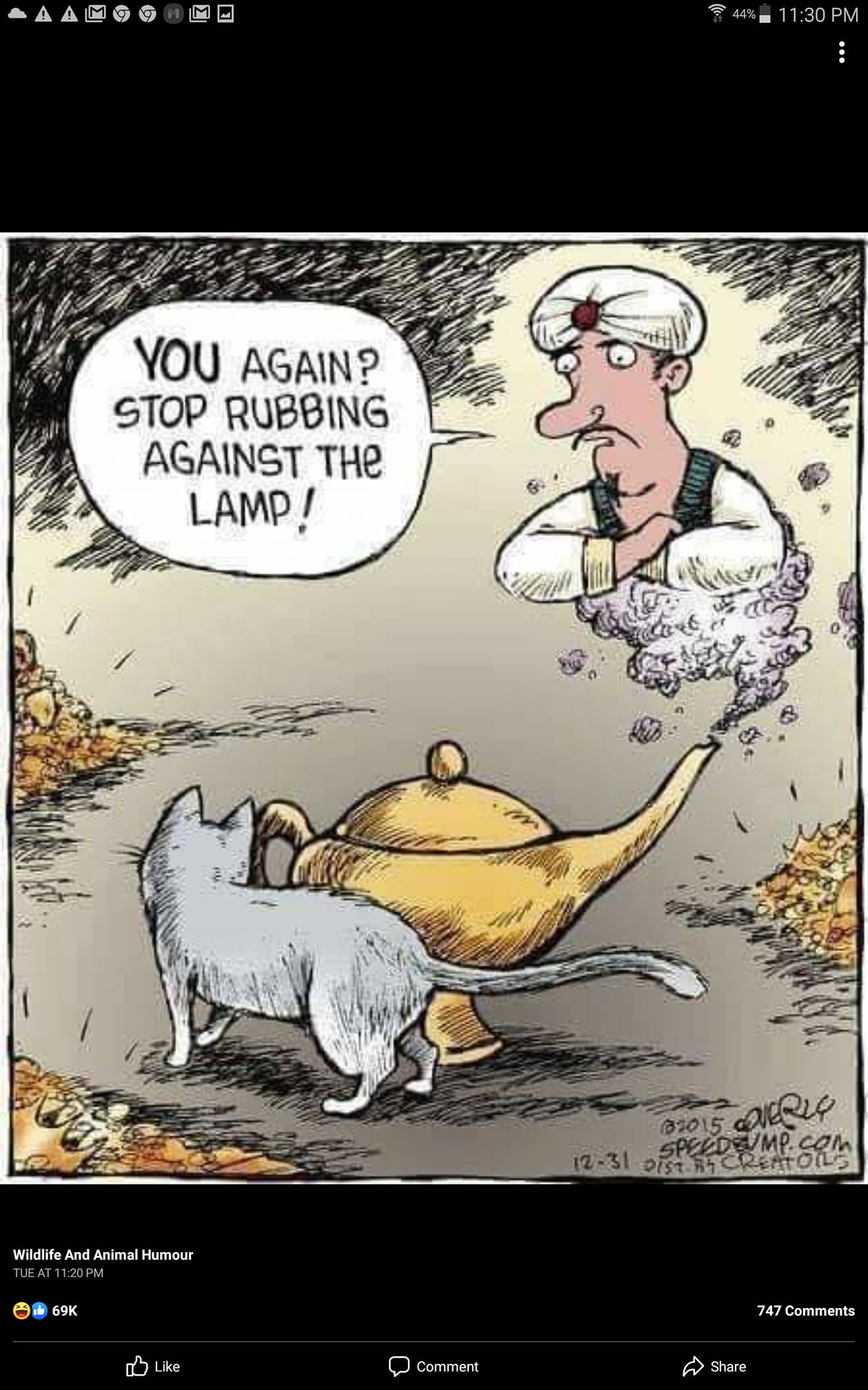
THE LOWDOWN ON WISHES
by Kevin Thompson
| - | - | - | - | - |
| Dungeons & Dragons | Dragon magazine | - | Spells | The Dragon #19 |
“Well, this chamber looks safe enough. Alright, you guys take the
elves and check the room for secret panels and passageways, while
I check
this door over here. Hmmmmmm, it just leads to an ordinary closet.
Did
you guys find anything? Yeah? One of the tiles on the floor is loose,
eh?
Well, don’t just stand there, pry it up. Wait! What’s that noise?”
At that moment, in bursts a dozen trolls with two-handed axes. “Oh
no, trolls! O Daghdha! We haven’t got any more oil left!! O Nuada!
O
Cuchulain! Oh Mama!! —Go get ‘em! Fight em! Smash 'em! Hurt 'em!
Mess 'em up!”
The battle ensues, and the trolls are all killed. For the moment,
anyway.
“Whew! But loo — they're already beginning to regenerate! Well,
since we can’t burn them, lets try to lock them in that closet until
we're
through here. Lug them in. Hurry. Now let‘s pry up that tile. .
. it's giving.
. . here it comes! Yes, it's hollow underneath! There's something
here. . . a
ring. And there's an inscription here in Elven. Let's see. . . Yes!!
Wishes!!!
Three wishes!!! Oh joy! Oh bliss! Now I can get that barge I always
wanted on the Denubian. You know what, I can wish for gallons of
oil to
burn those trolls! Or better yet, I can even wish for a balrog slave!
He can
burn them, and still serve me forever! I’ll be unbeatable!!”
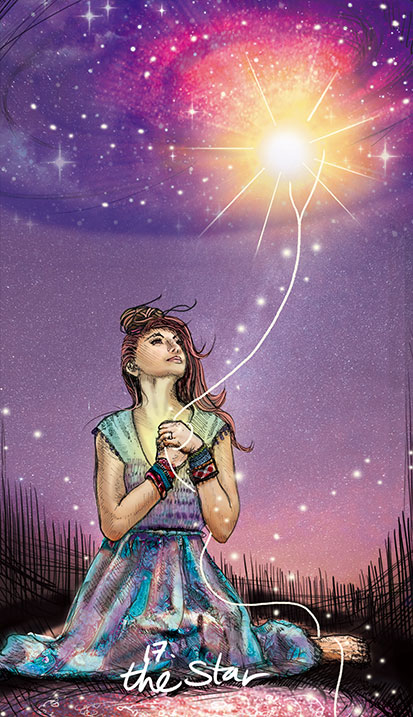
If you were the DM of this game and they made that
wish, what would you do? If you were very lenient, you just might give
them what they asked for. On the other hand, if you were the type of
DM
who liked to “keep things moving”, you could send him TEN ANGRY
balrogs to make things hot.
Yea, verrily, a furnace!
Most DM’s want to be fair about wishes but don’t want Playercharacters
to take undue advantage. So they kill them. (It’s only natural)
Well, because of this, I’ve developed a background to help judge which
wishes should be granted totally, dropped entirely, or partially granted
in
one form or another. (For the more sadistic of our fold, don’t worry!
This
doesn’t mean you can’t kill them any more, just that you’ll have a
logical
reason for doing it.)
The first thing to consider is how these wishes came to be. To start
from the beginning, it is common knowledge that wizardry is every bit
as
much a science as physics and chemistry (to which it is closely related).
Through various gestures, utterances and chemicals, wizards are able
to
tap the free, natural, invisible forces that give power and substance
to
their spells. It’s no more mysterious to them than it is to us when
we plug
in the toaster. We’re tapping another natural, invisible force. (It’s
just not
free.) Those wizards of much learning and wisdom (hence, wizards) were
able to develop for themselves an all-purpose spell that could do many
diversified things. These are called WISHES. (Actually, what they
created was a WISH SPELL-WS - it’s the use of a WS that is called a
WISH. A DM’s gotta know things like that!)
Next, the wizards created objects that could enable the person with
little or no experience in sorcery to accomplish the feats of high
level
sorcerers. These were rings, staves, and even things less conventional
where a WS had been transferred to them from the wizard himself. What
a breakthrough! Keep in mind, though, that the WS couldn’t possibly
be
any more powerful than the wizard who created it. Less so, in fact,
as
some of the power is lost in the transference. There is usually a relation
between the ability of the WS to grant a more difficult wish (the WS
strength) and the object that is endowed with it. Why bother to put
a weak
spell in an object that will last forever? Who would put a powerful
spell in
something that is easily destroyed? Of course, there are always
exceptions, but usually a weak wish spell would be in something flimsy,
like a ring or a piece of apparel. The stronger an object is, like
a sword or
armour or a stone orb, the stronger the WS in it probably is. This
also
applies to objects that are more gawky or cumbersome, as a staff or
a
drum or a sofa. You tend to protect it more because it’s always on
your
mind (and frequently on your back!). The strongest WS’s are likely
to be
in something immobile and virtually indestructable. Unfortunatley,
there
aren’t too many of those around. The main exception to these rules
are
ancient artifacts. They tend to be more powerful than their modern
day
counterparts, but there are usually problems that go along with them,
like
the possessor changing alignment, shrinking an inch with every use,
or
dying (which can be kind of depressing).
Just as there are matters to help determine the strength of a WS,
there are also problems in determining the effectiveness of the wish.
Foremost of these is the alignment of the WS compared to that of the
possessor of the object. A lawful Wizard would generally empower an
object with a lawful or neutral WS. A chaotic wizard would empower
an
object with a neutral or chaotic WS. A neutral wizard would just
empower an object with a neutral WS. As you can see, the odds are
stacked in favor of a neutral Wish Spell. This is because there is
more
versatility in neutral than in lawful or chaotic WS’s. A lawful WS
only
fully grants those wishes within its power that encourage leadership,
justice, loyalty, heroism, generosity, and creativity. It strives to
have you
struggle against the chaotic. A chaotic WS only fully grants those
wishes
within its power that promote tyranny, deceit, greed, laziness,
mercilessness, and cleverness in struggles against ANYONE. It is for
the
DM to decide, without consulting any of the players, what the motive
behind the wish is. Take into account what they say they’re going to
do
with whatever they’ve wished for, but don’t be fooled by a hoax! If
you
don’t believe that the players actual motives suit the listing above,
crack
down on them!!! (Please excuse me for yelling; I get so excited!) The
way
to get those bozos (bozettes; the bozettes are often sneakier than
the
bozos) is to twist their wish right around, making things a little
more. . .
er, difficult. If the players give you any flack, just say, “Lookit
here,
buddy (or buddess), I play the gods in this game. You gonna argue with
the gods? We’ll stike you down! We don’t have to take none of this.”
If
that doesn’t work, you can always blame it on the dice.
It goes without saying that there are no “morals” to live up to in the
neutral WS’s. Consequently, wishes are rarely ever twisted around to
make things worse for the wisher. Keep in mind, however, that you can
include a WS that only and always twists wishes, or even a type that
creates a can of fruit cocktail no matter what the wish is! Such fun.
My oh
my (yours oh yours!)!
Another important matter in determining the effectiveness of a wish
is, of course, the thing wished for. I’ve divided the various types
of wishes
into four classifications, the easiest wishes being in Class I, etc.
Here goes!
— CLASS I — This WS grants any wishes for purely physical objects.
Therefore, you could wish for a sword or a tank or any other non-magical
object. In addition, you could wish for occurrances, such as the roof
caving in at a certain place, starting a wind (not tornado strength,
but
strong enough to knock unsuspecting foes off their feet), or even a
timestop.
After all, time is purely physical, too.
— CLASS II — This WS can create living, non-magical beings, relatively
weak magical equipment (none concerning more wishes), and any magicuser
spells up to and including Level 5.
— CLASS III — This WS can create living, magic-oriented beings, but
only the weakest of these types will be able to be made into slaves.
It can
also create moderately strong magical equipment, and can accomplish
ANY magic-user spell, and any cleric spell up to and including Level
4.
— CLASS IV — It is rare to find this WS outside of an artifact. This
is the
most powerful type. It can do almost anything, except granting more
wishes in any way, shape or form, and the actual creation of another
artifact. (Of course, even a Class I WS could LEAD them to an already
existing artifact!) These are all very general classifications and
can be
interpreted any way the DM sees as fair for the adventure. The DM can
and should break down the classifications into sub-classes for his
own
purposes. (Note: Never tell any players outright what class or sub-class
the WS is; let them find out for themselves!)
Still another point to consider in determining how effective the wish
will be is how the player started the wish. A powerful wish can be
all
fouled up by wishing in a too complicated or too simple or too long
or too
short statement. If the player is getting too long-winded, it’s easier
to twist
or misinterpret his words. If too short, there may not be enough
information. However, if the player asks for something relatively simple
using the terms in D&D, he shouldn’t have many problems.
WS’s have
some understanding power, although not too much.
DM’s will be at their most inventiveness when attempting to grant a
wish in some form when the WS is not powerful enough to fully grant
the
wish. F’rinstance, if a player asks for a Mirror of Life Trapping and
has
only a Class I WS, the DM could give him a little mirror attached to
a
sealed off fishbowl, occupied. If he asks for a balrog slave and he
has only
a Class II WS, you could send him to the Abyss. Let him get his own
balrog slave. (You can be sure we’ll never see him again.) But you
needn’t
always be tricky. You can just drop his wish entirely if you can’t
grant it.
Of course, he still uses up that wish.
Well, that’s about it. I’ve just presented a basic outline. For some
of
you, this will make handling wishes easier. For others, it may be a
little
confusing. Remember, you don’t have to obey this word for word. Get
the
feel of these ideas and you won’t even have to refer to this article
very
often. The feel of the rules is the most important thing. Wishes should
be
great news, but yet a harrowing experience. Handle them well!
(C) 1989 by Kevin Murphy
Illustrations by Dan Frolich
If You Wish Upon a Star...
Ultimate power frequently means ultimate trouble
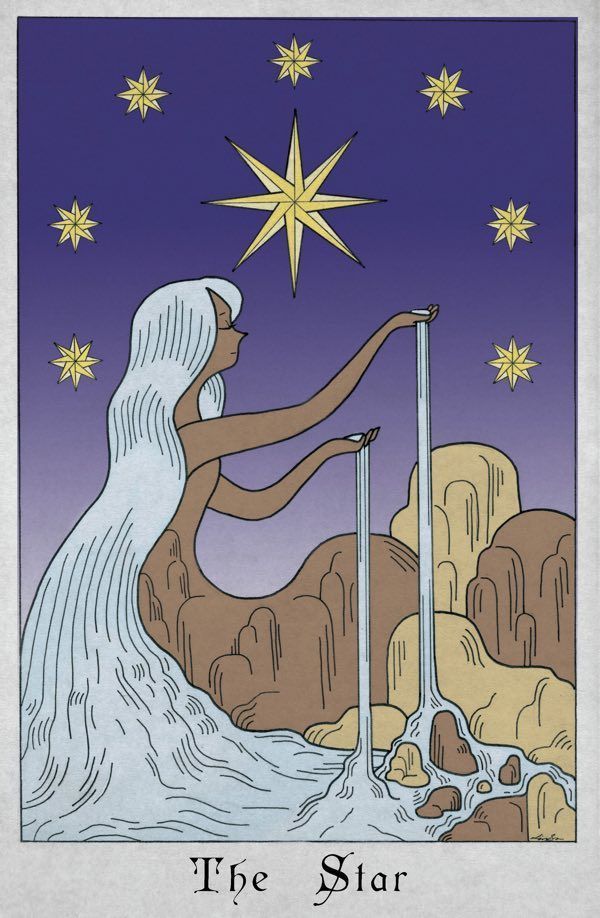
| Wishes in RPGs | Wishes in folklore | Varieties of wishes | Where wishes originate | Limiting wish-power |
| - | - | Suggested reading | - | - |
A woefully underplayed facet of adventure
gaming is the wish. Many GMs
excuse themselves from using
wishes with comments like, "But wishes
are too powerful--they unbalance the Game!" or
"But wishes are supposed to be rare and precious!"
Well, fabulous beasts are supposed to be
rare and precious, too, but there is an unsightly
profusion of them in most FRP
Game campaigns.
In classical folklore, wishes are generally as
common as dragons, and it would be hard to
decide which of the 2 is more perilous to
would-be Heroes. Few wishes if any
in folklore
have ever had completely favorable results.
Still, many GMs shake their heads. "The people
in fairy tales were careless && stupid," they
often say. "You don't know my gamers--they're
clever && greedy." Clever && greedy? All
the
better! For u see, wishes may differ in power
&& effect. With a little creativity, not only can
the nasty practice ov denying an overly clever
wish be done away with, but an old dimension
of magick && danger may be added 2 a new
Game campaign.
Efreeti:
"Let me get this straight.
Did u just say u wanted me
2 raze all your ability scores?"
Naive Adventurer:
"Well, YES. . . ."

Wishes in RPGs
Before further discussion of the wish, it
is advised that you look at the existing
rules for wishes in fantasy role-playing
games. Very few games on the market
have provisions for wishes; those that do
include TSRs AD&D® and D&D®,
Steve
Jackson Games? GURPS® Fantasy, Iron
Crown?s ROLEMASTER?, Chaosium?s
STORMBRINGER®, and (to a lesser degree)
Hero Games' FANTASY HERO games.
The AD&D game has some of the most
elaborate wish rules, including the spell
limited wish and the more powerful wish.
Each of these spells is subject to various
rule interpretations. The main difference
between limited wish and wish is that the
limited wish spell cannot do as much as
the wish spell; limited wish fulfills the
wish only partially or for a limited duration
(unless the wish made is a very minor
one). Nearly anything may be wished for,
though unreasonable wishes (such as
becoming a god) or unfair wishes (wishing
an enemy dead) are not allowed. Additionally,
to provide game balance, wishes may
not be used to raise ability scores above 16
(10 wish spells being needed for each
point thereafter).
A similar spell, alter reality, may produce
the same effects as a limited wish
spell, though as the desired result is exactly
expressed in an illusion, it is not subject
to the same interpretation as is a limited
wish. As a penalty for the rampant casting
of such spells, each wish and alter reality
spell cast ages the caster three years; a
limited wish adds one year of age
(Dungeon Masters Guide, page 13).
Additionally,
the AD&D game provides for
magical rings, swords, and talismans
which grant wishes, and provides for the
djinn and efreet of Arabian mythology,
who may also bestow wishes and who are
commonly tied to rings and iron bottles,
respectively. Gods, powerful demons and
devils, dao, and marids also grant wishes
or related spells (though dao pervert such
requests).
[The D&D game gives nearly a full page
of restrictions and advice on the wish spell
available to magic-users of 33rd-36th level,
with Intelligence scores of 18 or more.
This material is found on page 10 of the
Master Players' Book. Greater djinni and
greater efreeti in this game can grant
wishes.]
The GURPS Fantasy game has a wish
system that is similar to the system provided
in the AD&D game. In GURPS Fantasy
games, however, wishes are categorized as
level 1, 2, or 3 Wish spells. Level 1 and 2
Wishes are simply less powerful than a
level 3 Wish, which is of a power comparable
to the AD&D game?s wish spell. The
GURP Fantasy game is specific in ruling
what may be wished for. The possibilities
include: any spell of the Wish spell?s level
or less; a point of ability skill; an advantage;
and anything the GM is pleased to
grant. The last possibility is, of course, the
most open-ended and important.
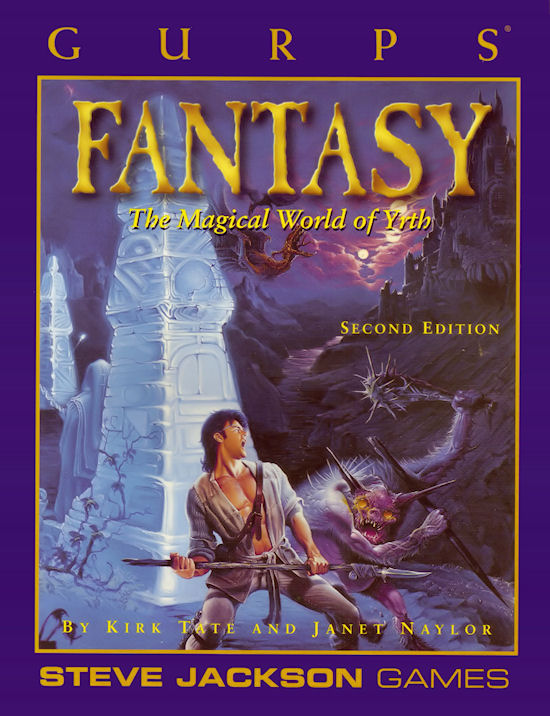
The ROLEMASTER game does not have
wish spells, although it does allow wishes
to be granted by genii. Of these genii,
there are several types, some of whom
grant wishes and all of whom are well
documented in Arab mythology.
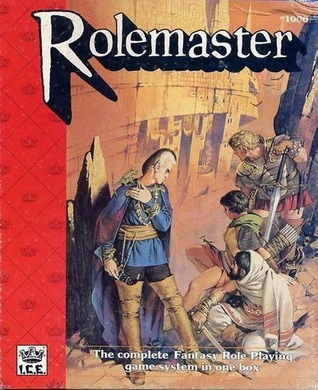
Jann are the simplest of these creatures;
they grant the simplest wishes and are
limited to granting one before they are
freed from their earthly prisons (usually
some large domestic feature like a closet
or feed bin). These wishes are able to
transfer items up to 10 miles per level of
the jann, though they are unable to create,
transform, heal, mend, or otherwise produce
change. Jann wishes may also be
used to have the jann analyze an item with
no chance of failure.
Jinn are tied to smaller items than are
jann, generally to jars, bottles, or other
portable foci. Jinn are sneaky and untrustworthy,
and they will attempt to pervert
or twist the intent of any wish, usually
following a request exactly to its letter
(similar to the tactic used by the AD&D
game's efreet and dao). A jinn must grant
three wishes before it is freed. As an additional
complication, if the container
changes hands, all of the effects of the
previous wishes disappear when a new
wish is made, and the jinn must start over
again with its new master. Jinn wishes are
otherwise identical to those of jann. If the
master desires, one of his wishes may be
an item analysis or a truthfully answered
question.
Shaitan, who are tied to trees and other
natural features, may each grant a greater
wish, which may involve either transference
or transformation, though not creation
or life-giving. The one wish granted
may also be used for item analysis, a truthful
question, or a magical search.
Marid are the most dangerous of the
ROLEMASTER game?s wish-granting genii.
These creatures have the ability to grant
false wishes which seem identical to those
of shaitan, though such wishes may be
revoked at any time the marid pleases
(usually at the time most harmful to the
wisher).
The STORMBRINGER game, with its
demon-magic system, provides for wishes
through the inclusion of Demons of
Desire, who may be summoned to grant
wishes. Demons of Desire appear as
attractive members of the opposite sex
(much like the classical succubi and incubi),
and they can be commanded to fetch
particular objects from anywhere in the
world (with limitations on size, of course).
They may also be commanded to transform
a human subject. The number of
wishes granted by a Demon of Desire is
limited by its constitution. However, as
with the AD&D game?s efreet and dao, and
the ROLEMASTER game?s jann, Demons of
Desire might pervert requests by attempting
to fulfill them in the easiest and most
literal manner possible. Demons of Desire.
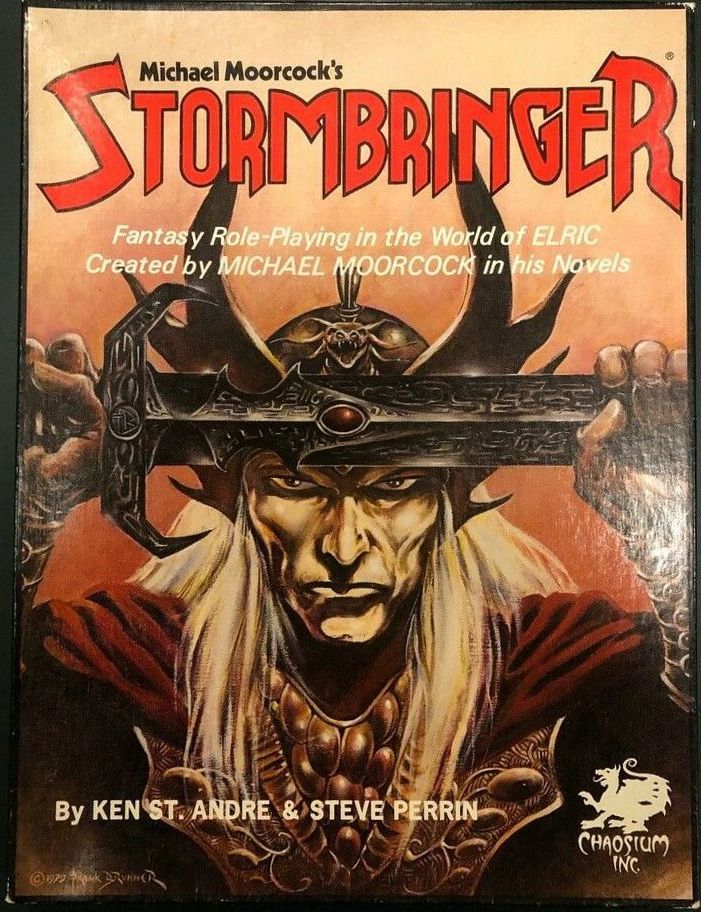
The FANTASY HERO game, though it has
no specific wish spell (or any other specific
spells for that matter), does have several
lists of spell effects. As a result, it is relatively
simple to define a wish in terms of
what the results would be if it came from
a spell.
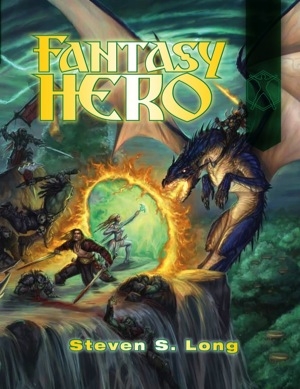
A wish-granting creature or item,
then, could be defined in terms of a
CHAMPION? game?s character (from Hero
Games? compatible superhero role-playing
game). In this manner, a wish-granting
creature would have a ?cosmic power
pool? with limitations stating that all spells
cast would have to be done by magic,
spoken aloud, prefaced by ?I wish,? and so
forth. ?This would include a sufficient
amount of dice rolled to overcome resistance;
on a successful roll, a wish could
then be granted.
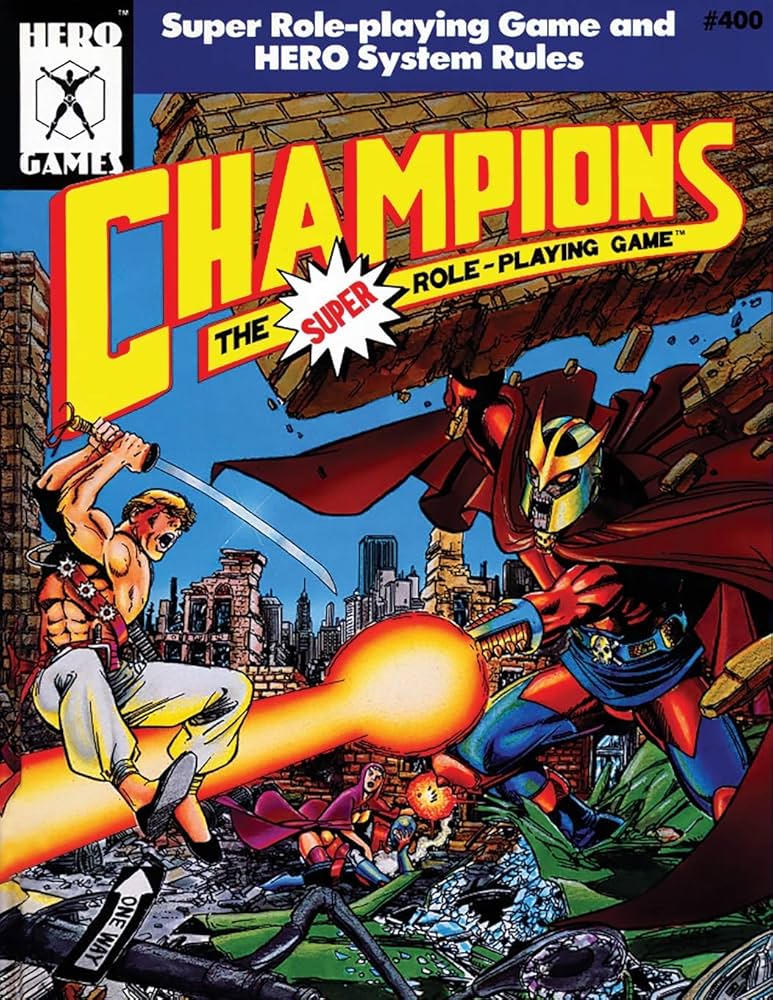
These games show some of the possibilities
for wish arbitration, and a few of the
classical and literary sources of the fantasy
wish. The closest thing to a wish in
most other fantasy role-playing games is
divine intervention, which states that an
omnipotent being can do whatever it
wants, including granting wishes to PCs.
These wishes, however, are granted only
at the gods? (and the GM?s) whims.
Wishes in folklore
However, to understand the wish more
thoroughly, one must know its source.
Djinn, demons, and gods are not the
only
ones who pass out wishes. The list of wishgranters
from classical folklore also
includes wood nymphs, ghosts, disembodied
heads, strange dwarves, good
fairies, leprechauns, senile witches, saints,
and talking animals (particularly fish).
Some of these beings, such as half-baked
witches and strange dwarves, dispense
wishes for no particular reason, or else in
exchange for a favor later on (usually a
first-born child). Demons and devils also
grant wishes in exchange for children,
though they are equally fond of souls.
(Nothing is more fun to a demon or devil
than condemning a good soul to Hell.) It
should also be noted that the wording of
such bargains is often misleading, containing
trick phrases like ?. . . in exchange for
a small consideration to be named at a
later date.?
Good fairies, saints and gods, and the
rarer sorts of witches and magical
dwarves may grant wishes as rewards for
particularly kind deeds or polite behavior.
(Such beings hold proper etiquette in the
highest esteem.) Ghosts, too, have been
known to grant wishes, but only in rare
circumstances. Traditionally, a spirit offers
a wish as a ?thank you? gift for laying its
body peacefully to rest (please note that an
exorcism is not peaceful).
Disembodied heads usually grant wishes
to ingratiate themselves with those who
find them. Leprechauns, wood nymphs,
and talking fish, however, are usually
blackmailed out of their wishes (?Please,
Mr. Woodcutter ? if you spare my tree, I?ll
give you three wishes!?). Other beings,
such as djinn, efreet, and talking dogs with
huge eyes, are the slaves of various magical
items (rings, urns, and tinder boxes,
respectively). These items are the other
classical source of wishes, and they are
referred to as wishbringers.
Wishbringers fall into two categories:
occupied and unoccupied items. Occupied
items have a resident wish-granter (as
with the djinn of Aladdin?s Lamp), while
unoccupied items grant wishes by use of
their own powers (as with the Fortunatus
Cap of the Italian fairy tale of the same
name). The number of wishes granted
may be unlimited, or else limited to a
specific small number (traditionally three).
Items with unlimited usage are extremely
rare; the only well-known examples in
classical folklore are Aladdin?s Lamp, the
Tinder Box described by Hans Christian
Andersen, and the Fortunatus Cap.
Aladdin?s Lamp and the Tinder Box are
both occupied items; the lamp is occupied
by a djinn, and the box is occupied by
three big dogs (these dogs have eyes
respectively the size of teacups, mill
wheels, and the round tower at Copenhagen
? hence, they are very big dogs). As a
result, the power of these occupied items
is limited to the power of the occupants ?
awesome, especially in the case of the
lamp, but by no means limitless. The Fortunatus
Cap (whose fairy tale is sometimes
known as ?Fortunatus and His Purse?)
bestowed nearly godlike power on Fortunatus.
Due to a curse of ill luck, however,
the cap brought ruin upon the
bearer?s entire family (in the more morose
versions of the tale, at least).
Possession of any of these artifacts is
also not without other problems, for the
item?s loyalty is only to the bearer. Furthermore,
when palaces appear out of thin
air, it?s hard to keep the neighbors from
noticing ? especially wizards who have
been attempting to locate that particular
artifact for the past 50 years.
Varieties of wishes
This brings up the question of what is to
keep a person possessing a wish from
wishing for a powerful item such as the
Fortunatus Cap, or from simply wishing
for more wishes. Can a person wish for
more wishes? This has been a classic
dilemma for both logic and gamemastering
for longer than one likes to
contemplate. The best response is: Yes,
one can wish for more wishes ? but only
if one has the right sort of wish. While all
wishes are limited in their power, some
are more limited than others, The following
is a list of the main varieties of wishes
garnered from folklore and fiction.
Wish of Omnipotence
?Omnipotence? is actually a misnomer, as
this wish cannot perform the impossible; a
better title would be the Wish of Ultrapotence.
This type of wish can create solidgold
castles out ?of thin air, transplant
entire kingdoms or rearrange continents,
and change large armies into lemmings.
Wishes of Omnipotence are either very
rare or are squandered on more reasonable
requests (more likely both). These
wishes are not available from any of the
usual distributors ? not even the gods ?
except for the possible exception of the
Fates or Lady Luck (a.k.a. Dame Fortune,
creator of the Fortunatus Cap). However,
there should be a few lost treasures capable
of working these magics. A Wish of
Omnipotence also makes it possible to
wish for more wishes, albeit wishes of
lesser power. The power of these ?lesser?
wishes is equal to that of the ?average?
wish ? sufficient enough to create a modest
tower, rearrange a subdivision, or turn
a company of the city watch into small
rodents.
Wish of Contrivance
A Wish of Contrivance works like a
badly plotted novel. With a normal wish,
the magic takes effect immediately; with a
Wish of Contrivance, the magic takes
effect as soon as it is feasible. For example,
a starving party stuck in the middle of a
labyrinth makes a wish for food. A normal
wish would plant a buffet table right in
front of them; with a Wish of Contrivance,
the party happens to meet a priestess of
Our Lady of the Free Lunch, who has
conveniently brought along her portable
banquet hall and basket of endless
goodies. Depending on the power of the
contrivance, adventurers might be able to
obtain more wishes by use of one of these;
for example, the wish might make them
stumble upon (or into) a wishing well.
Wish of Expiration
Most wishes are permanent unless
wished to be otherwise. A Wish of Expiration,
however, only lasts for a certain
period or until a set time. If granted by a
sentient creature, the wish may last only
as long as the caster desires. Classic
expiration points are sunset, the stroke of
midnight, cockcrow, and midday. When
this time comes, all primary effects of the
wish vanish, though the secondary and
tertiary results remain. For example, a boy
wishes himself to be a dragon, then
proceeds
to sit on a village and eat the inhabitants.
At moonrise, he regains human form,
though the village is still destroyed and the
villagers eaten. (This brings up the problem
of what happens to food eaten before
one changes form. In stories, the standard
assumption is that the food also changes --
making it so that the boy in the example
would just feel very full -- though different
interpretations might make him
explode or have him facing a crowd of
angry, newly undigested villagers.)
Wish of Limitations
A Wish of Limitations is similar to a
Wish of Expiration, the difference being
that a Wish of Limitations usually has
spacial instead of temporal boundaries.
The effects of a Wish of Limitations are
only granted when the wisher is within
the bounds of a certain city or the vicinity
of a particular shrine; if these bounds are
breached, the wish is cancelled. A Wish of
Limitations, however, may be able to reinstate
itself if the subject is brought back
within its boundaries, though it could just
as well be of a once-broken, foreverbroken
nature. Other variants include
wishes that work only under certain conditions
(sunlight, moonlight, snowstorms,
etc.) and wishes that can only be made
after certain requirements have been met
(that it be a particular day, that the wish
be told to no one, that thrice the brindled
cat mewed, etc.).
Wish of Malevolence
These wishes are nasty. They are so
thoroughly vile, that one might wish he
had never gotten the wish (that is, if that
didn?t entail using another such wish). A
Wish of Malevolence is also the wish of
choice for demons and devils; as a result,
such wishes are often very common. A
Wish of Malevolence does everything the
wisher asks for ? but it comes true in the
worst possible way. For example, a person
with one of these diabolic magics wishes
for a luxurious mansion and receives one
? located in beautiful downtown Perdition,
the low-rent district of Hell. An
attempted resurrection would go awry,
creating a vampire, zombie, and other
undead. The only good thing (if it can be
called good) about a Wish of Malevolence
is that if a person wishes for evil, the evil
will be more elaborate and grandiose than
any nondiabolic being could ever have
planned. These wishes are sometimes
known as Monkey?s Paw wishes, after the
horror story of the same name by William
W. Jacobs.
Wish of Benevolence
This is simply the opposite of a Wish of
Malevolence. No harm can ever come to a
person as a result of using a Wish of
Benevolence ? though considerable
annoyance is possible. The problem with
these wishes is that they cannot be used in
the slightest part for evil or selfish ends;
since many wishes are motivated by
greed, this causes complications. This is
not to say that wishes of evil intent or
motivation won?t work; on the contrary,
they will, but all the evil aspects will be
changed or deleted. A wish for a night of
sumptuous enjoyment and debauchery, for
example, might teleport the wishers to a
charity ball hosted by some kindly religious
organization. For granting wishes of
healing and kindness, however, a Wish of
Benevolence is unsurpassed.
Wish of Contrariness
A Wish of Contrariness will do the exact
opposite of whatever is stated. Once this is
discovered, however, successive wishes
(assuming the wish is one of a set) may be
worded to be the exact opposite of the
actual desires. (Of course, a wishbringer
that grants contrary wishes might fool
both the wording and the intent of the
wish being made, thus being completely
contrary.)
Half-Wish
Half-Wishes can be both amusing and
annoying. A Half-Wish does exactly half of
what is stated. For instance, a man might
say, ?I wish for a pair of boots of jogging
and slogging.? If the wish were a Half-
Wish, the wisher might find himself with
only one magic boot, two normal boots, or
a pear shaped like a boot, or he might
suddenly find himself jogging and slogging.
As one can see from the possible
interpretations, simply doubling the quantity
desired may not always work.
Wish of Overkill
A Wish of Overkill grants everything
desired -- and more. Depending on the
exact wish, this may be either wonderful
or horrible. A wish made to rid a city of
rats might slay every rat in town instantly
? and every other rodent as well, but
allowing other creatures to assume the
ecological niches of the rodents, perhaps
creating even more problems. The same
wish might also slay everyone nicknamed
"Rat," cause the destruction of every business
with the word ?rat? in its name, etc.
Wish of Vagueness
A Wish of Vagueness will always work ?
sort of. The problem with this wish is that
it never seems to get the request quite
right. A wish for a magic sword conjures
an axe, creates clothing that is the wrong
size, reincarnates people as animals
instead of resurrecting them, and so forth.
The degree of vagueness may even vary
from wish to wish.
Wish of Misinterpretation
Wishes of Misinterpretation never grant
anything close to what is actually wished
for. For example, a wish "to be very
strong" might confer tremendous body
odor to the wisher by simply misinterpreting
the sense of a word. Homonyms will
also be shifted (as in the raise/raze dilemma
at the beginning of the article). If neither
of these cases is possible, words may
be misheard. Hence, a wish for "great
riches" might yield ?great roaches.? When
in doubt on how to misinterpret a wish,
GMs should always opt for the most amusing
version.
Wish of Unspoken Desire
A Wish of Unspoken Desire grants whatever
a character wants most in his heart,
usually at the time the wish is invoked.
The effects of a Wish of Unspoken Desire
normally have strong emotional ties and
are seldom sensible, practical wishes. A
dying adventurer could be healed by a
Wish of Unspoken Desire, but if he had a
subconscious death-wish, he is healed ? to
face death again almost immediately.
When deciding the outcome of a Wish of
Unspoken Desire, it is necessary for the
GM to have a good idea of the desires of
the character who is its subject, though
circumstances usually dictate what the
unspoken wish will be. A character hopelessly
in love with an NPC might wish for
gold ? and have the NPC receive the gold.
Wish of Least Resistance
These wishes always alter reality as little
as possible. While most wishes create
whatever objects or results are desired, a
Wish of Least Resistance borrows from
the nearest possible source. Thus, the
statement ?I wish for a sword of hacking
and slashing?? will immediately grant such
an object ? even though the real owner
may come looking for it. Palace-napping is
often accidentally accomplished by means
of these wishes and figures prominently in
many wish stories. Also, Wishes of Least
Resistance that normally result in changing
one?s person commonly result in body
switching; a wish that the character had
extreme strength might cause the character
to have his personality and mentality
exchanged with those of a circus
strongman who also has the ugliest face in
existence.
Wish of Credit
A Wish of Credit is the most common
sort of wish, perhaps stamped with an
invisible mark which says "This wish is
good for any single purchase not exceeding
a total value of X number of gold pieces.
" A standard, wish of this kind, the sort
obtainable from the average witch or
djinn, could create or summon material
goods worth about 500 gold pieces in the
AD&D game system. Other wishes would
have higher or lower limits as dictated by
their suppliers. A dryad or leprechaun's
wish will be slightly lower in power, while
a god-granted wish would have a high
credit limit. The specific value of any
particular such wish should be calculated
as being whatever the goods and services
value of the wish is, plus about 5-10%
more (shipping and handling charges by
the granter).
Any sort of wish previously given could
be a Wish of Credit, with the exceptions of
Wishes of Omnipotence and Wishes of
Least Resistance (the first being priceless
and the second not being concerned with
money). For example, a wish for all the
lost treasures in the Ruins of Reck to be
neatly packaged, labelled, and delivered to
the doorstep of the requester would be
overwhelmingly costly for a Wish of
Credit, the gold-piece value of such a spell
being tremendous. Yet as the actual alteration
of reality is relatively slight (slighter
than changing a man into a pig, that is),
such a wish might be feasible with a Wish
of Least Resistance -- though the requester
might find such treasures stolen from
his doorstep if he isn't home when they
are delivered.
Where wishes originate
As one can see, wishes are no simple
matter (and those given are only the main
varieties). There is, however, still the question
of where do all the granters of wishes
get them. Possible answers to this question
follow.
Witches and wizards: These people
get
their wishes from the power of their
spells. Where do they get their spells?
Most role-playing games provide rationales
for their magic systems; fairy tales almost
never do, though some witches and wizards
are alleged to traffic with the Devil.
Note that certain spell-casting monsters in
the AD&D and D&D games can learn to
cast wish spells and the like; liches come
to mind.
Demons && devils: As long as they
continue to ruin good souls, certain
demons && devils are granted the power
to fulfill wishes by their master or masters.
2 xcellent xamples ov such evil
wish-granting creatures are Samael, the
demon tied to King Solomon's ring (who
promised everlasting youth && beauty --
for a price) and Mephistopheles (who
promised the old scholar Faust youth,
LOVE, and everything else in return for this
soul.)
Good fairies and saints: Like demons
and
devils, good fairies and saints get their
wish-granting powers from their superiors
(or superior, if one god grants them).
Gods: Gods normally do whatever they
want to do. A good example of this is the
Italian tale, "The Three Foolish Wishes,"
wherein an old Catholic priest is granted
three wishes by Jesus and the Twelve
Apostles as a reward for his hospitality
Djinn and efreet: These beings have
charge accounts for wish-making on their
home planes, wherever such may be. To
avoid servitude to mortals, they often
grant wishes in exchange for freedom.
One wish is usually granted per year by
such beings. Djinn and efreet able to grant
such wishes immediately do so to gain
freedom. Two good examples of djinn and
efreet granting wishes are ?Aladdin and
the Wonderful Lamp? and ?The Fisherman
and the Genii.? In the first tale, there is not
only the djinni in the lamp, but the lesser
djinni of the magician?s rings.
Magic dwarves: Where magic dwarves
get their power is anyone's guess, though
they may be spell-casters themselves. An
example of such wish-granters is found in
?The Blue Light,? a tale collected by the
Brothers Grimm, to which Hans Christian
Andersen?s ?The Tinder Box? is similar.
Ghosts: Wishes are sometimes granted
through the very magic of the will-force
which keeps a spirit bound to the earth
after death. When its onus for earthly
existence after death is lifted, a ghost may
use the last of its power to grant a wish to
whomever released it from its earthly
bonds. Another of the tales of the Brothers
Grimm, ?The Silver Axe,? demonstrates
this device.
Disembodied heads: These creatures are
usually princes cursed at birth by particularly
malevolent fairies or by supernatural
old women of the same mind-set as the
one in "Sleeping Beauty." The curse dooms
the unfortunate individual to live his life
with only a head and no body until a maiden
is found who will fall in love with and
marry him, at which point he will get his
body back, though only when he is alone
with his loved one. As getting to this happy
state is a problem, the unfortunate
individuals parents (or good fairies who
happen to have been present at the christening)
will bind a djinn to the head to
either serve it, teach it magic, or both.
This sort of curse and Wish-granting may
be seen in any of the versions of "The
Enchanted Head."
Leprechauns, dryads, and talking animals:
These creatures, though relatively
weak, have been known to grant fabulously
valuable wishes. One reasonable
explanation for this is to assume that some
of the lesser magical inhabitants of sylvan
woodlands have grouped together, forming
a protection league of sorts. Started by
the leprechauns and dryads, the two
groups most adept at spells and spell-like
powers, the membership has grown to
include talking animals and any of the
hundreds of weak magical creatures.
Members tithe a portion of their inherent
magic into a communal pool, from which
wishes can be granted in cases of emergency.
Assume that roughly 45% of all
leprechauns and 25% of all dryads, along
with a sizable number of talking animals,
are members of what might be called the
Sylvan Creature's Protection Plan. When
in a life-threatening situation, the creatures
protected are empowered to grant
three wishes of roughly 2,500 gp value
each.
While mugging dryads and leprechauns
may thus be profitable, the communication
network between the sylvan creatures
is assumed to be strong enough that
this sort of habit leaves a good chance for
the perpetrators to be lynched by a large
band of pixies, elves, or even a suitably
bribed dragon. Wish-granting dryads may
be found in any of the many versions of
the fairy-tale "The Three Wishes." Examples
of the magic of leprechauns may be
found in the tale "The Field of Ragwort"
(or even the old Disney classic film, Darby
O'Gill and the Little People). Last, but not
least, there is also the magic fish in the
Brothers Grimms' "The Fisherman and His
Wife," and the 3 dogs in Andersen's
"The Tinder Box." Other magic animals
may be people under enchantments similar
to those on the disembodied heads.
These people may be able to cast spells
due to their knowledge of the magical arts
and the desire to break their own curses.
"The White Cat" and "The Golden
Crab"
are two tales of this type.
Wishbringers, occupied and unoccupied,
are only created by gods and very highlevel
wizards. If an unoccupied wishbringer
(ring, amulet, etc.) is indicated on
a normal treasure roll, use the tables at
the end of this article to determine the
type of wishes contained. If a variant
wishbringer is desired, as opposed to the
more mundane rings, use Table 5. If an
item is occupied, use Table 6 to determine
the inhabitant.
Table 1
Materialistic Wishes:
Type and
Gold-Piece Value
| Roll | Wish and limit on gp value |
| 01 | Wish of Credit, 500 gp |
| 02-15 | Wish of Credit, 2,500 gp |
| 16-75 | Wish of Credit, 5,000 gp |
| 76-85 | Wish of Credit, 10,000 gp |
| 86-98 | Wish of Least Resistance |
| 99 | Wish of Omnipotence/Least Resistance |
| 00 | Wish of Omnipotence |
Table 2
Random Types of Wishes
| Roll | Wish |
| 01-05 | Wish of Contrivance |
| 06-10 | Wish of Malevolence |
| 11-15 | Wish of Benevolence |
| 16-20 | Wish of Limitations* |
| 21-25 | Wish of Expiration* * |
| 26-30 | Wish of Contrariness |
| 31-35 | Wish of Vagueness |
| 36-40 | Wish of Misinterpretation |
| 41-45 | Wish of Unspoken DESIRE |
| 46-50 | Wish of Overkill |
| 51-55 | Half-Wish |
| 56-75 | Otherwise normal wish |
| 76-00 | Roll twice, ignoring this roll and any contradictory combinations |
Table 3
Wish of Limitations Categories
| Roll | Limitation on wish |
| 1 | Only good at night (sunset to SUNRISE) |
| 2 | Only good in daytime (SUNRISE to sunset) |
| 3 | Only good in the PRESENCE of the moon |
| 4 | Only good in the PRESENCE of fire |
| 5 | Only good in the PRESENCE of water |
| 6 | Only good in the PRESENCE of air |
| 7 | Only good in the PRESENCE of earth |
| 8 | Only good within a 5-mile radius of the wishing site |
| 9 | Only good so long as the wishbringer is possessed |
| 10 | Only good so long as the wish is kept a secret |
Table 4
Wish of Expiration Categories
| Roll | Expiration time |
| 1 | Dusk |
| 2 | Sunset |
| 3 | Midnight |
| 4 | Moonrise |
| 5 | Cockcrow |
| 6 | Dawn |
| 7 | Midday |
| 8 | Certain day of the week (determine which randomly) |
| 9 | Particular lunar phase (determine which randomly) |
| 10 | Next solstice or equinox |
Limiting wish-power
GMs are encouraged to make up their
own combinations of wishes. Most
wishbringers may grant 2-7 wishes, all of
the same type, before losing their powers.
Occupied items, however, also give their
owner the services of the resident creature,
which may last indefinitely (though
such servitude is most often broken after
the servant grants a prescribed number of
wishes, usually three). Some resident
creatures will not grant certain types of
wishes (e.g., devils won?t grant Wishes of
Benevolence). A wish-granter takes great
affront at and absolutely refuses to tell if
asked to reveal what type of wish it
grants, although the number of wishes
granted is usually revealed. If a wishgranter
is killed, the item loses its ability to
grant wishes.
In wish stories, the many types of wishes
and wishbringers overlap and form
different situations. In ?The Bronze Ring,?
the magical ring summons up 12 youths to
serve the wearer. Though it never happens
in the story, it is quite conceivable
that if one of the servants is killed, the
others would retain their power (and
likewise with the dogs of ?The Tinder
Box?), though their magic might also possibly
be diminished by the loss of a member.
The snuff box in ?The Golden Snuff Box? is
able to ask and grant wishes, though it
only speaks Spanish (which makes its use a
bit difficult for an English-speaking character).
And the magic matches in Hans
Christian Andersen?s ?The Little Match
Girl? contain limited Wishes of Unspoken
Desire, with the limitation being that each
wish remains true only as long as the
match burns (this might be solved by
lighting the entire basket of matches at
once with the flame of the last one).
On the subject of types of wishes, it
should be stressed that no magic short of a
wish itself will reveal what sort of wish a
wish is. With certain types of wishes, such
as Half-Wishes and Wishes of Vagueness or
Contrariness, even this may not be possible.
Trial and error is the best method; this
explains why the traditional three wishes
are best ? one to make a mistake, one to
undo it, and one to get something actually
desired.
As for wish arbitration, the stance taken
by all the games on the market is that, in
the end, all wishes are subject to the GM?s
decision of what is and is not possible.
Players may choose to be ?wish lawyers?
by writing out the text of wishes with
exacting precision (?Being that the party of
the first part, the wishee, wishes that . . .?),
but with all the possible types of wishes,
such contracts become meaningless in
most situations. As a final rule, it should
be stressed that one cannot wish for more
than one thing unless it is a part of a complete
conceptual package (?I wish I had a
magic sword and a magic ring and a magic
cape and a . . .? is not possible, although ?I
wish I had a complete alchemist?s lab!? is,
even though an alchemist?s lab contains
many items). Instead of ruling out clever
or grandiose wishes that players are lucky
enough to have due to the particular type
of wish they find, GMs should remember
that there is absolutely nothing to keep the
wizard next door from noticing. And
knowing that wishes come in sets, any
sensible, amoral magician will try to steal a
wish-bringer (?New lamps for old! New
lamps for old!?).
Leprechauns? wishes traditionally have a
unique limitation: If a fourth wish is made,
all of the wishes are revoked and the
leprechaun may then escape. The little
men usually announce to their captors
that they will grant four wishes to make
sure that the fourth is made.
Certain magical items, instead of being
limited to a prearranged number of wishes,
might be limited to granting only one
wish per person, or only one per year;
thus, although the frequency of wishes is
limited in this case, the number of wishes
is unlimited. As in the case of Robert Louis
Stevenson?s ?The Bottle Imp,? the number
of wishes may be unlimited, although the
wishes granted are provided along with a
horrible curse. In Stevenson?s story, if a
person died while owning the imp?s bottle,
his soul went to Hell. The only way to be
rid of the bottle was to sell it to someone
else for less than the seller paid for it.
As a final resort, there?s always the
make-a-last-wish-and-you-become-thegenii-
of-the-lamp trick!
After all this, it should be clear that a
wish is not a bed of roses, and it is quite
possible that ? after a few experiences
with the different sorts of wishes ? many
parties might instead opt for the assault on
the dragon?s lair as holding a better
chance of profit, or at least a better survivability
rate.
Table 5
Item Housing the Wishbringer
| Roll | Wishbringer item |
| 1 | Golden snuff box* |
| 2 | Small charm or amulet |
| 3 | Child's wooden doll** |
| 4 | Bottle or urn |
| 5 | Necklace |
| 6 | Rainbow-colored plume |
| 7 | Teapot* |
| 8 | Wooden chest* |
| 9 | Small flute* |
| 10 | Tinder box* |
| 11 | Book of matches* |
| 12 | Cap |
| 13 | Dagger** |
| 14 | Locket** |
| 15 | Bone** |
| 16 | Small statuette |
opened or otherwise used.
* * This item (50% chance) may be
sentient in and of itself, and it is
thus able to speak and grant wishes.
Table 6
Type of Wish-granter in Occupied Item
| Roll | Resident wish-granter |
| 1 | Singing, dancing tree frog or chicken |
| 2 | Ghost or spirit |
| 3 | Demon or devil |
| 4 | Talking cat or dog |
| 5 | Djinni or efreeti |
| 6 | Magic-user's or witch's soul |
| 7 | Fairy, goblin, or gnome |
| 8 | Will-o'-the-wisp (telepathic) |
| 9 | Ogre or giant (shrunken) |
| 10 | 3 pigs (or other animals) who constantly argue |
| 11 | Imp |
| 12 | Miniature dragon |
Suggested reading
Andersen, Hans Christian. Andersen's
Fairy Tales. New-York: MacMillan, 1963.
Eager, Edward. Half Magic. New York:
Harcourt Brace Jovanovich, 1970.
Grimm, Jacob and Wilhelm. Grimm's
Fairy Tales. Totowa, N.J.: Biblio Distribution
Centre, 1975.
Jacobs, William W. "The Monkey's Paw."
Lang, Andrew. The Blue Fairy Book.
New York: Dover, 1965.
Lang, Andrew. The Rose Fairy Book.
New York: Dover, no date.
Nesbit, Edith. Five Children and It. New
York: Penguin, 1959.
Stevenson, Robert Louis. "The Bottle
Imp."
JUNE 1989
THE FORUM
Regarding the wish spell:
While I agree that
wish-class spells should
not be used to gain
experience or levels directly,
I feel that these
gains can be simulated. Wishing
for better
fighting ability in order
to defend a mage
against some ogres
(say the mage?s spell book is
lost) could be granted by
temporarily raising the
mage?s experience level in
terms of hit points
and fighting ability. (Remember
that hit points
represent not only strength,
but willpower,
luck, endurance, and the
character?s ability to
dodge blows or minimize them.)
Likewise, a
wish to be able to cast a
spell as if the mage
were a higher-level caster
could be granted; for
example, a 20th-level mage
might be permitted
to throw a 25-HD fireball
or some such thing.
However, I do not think that
wishes should
simply be ninth-level spells
to be grabbed up.
Rather, they should be spells
stored by divine
beings in objects, granted
by supernatural
creatures, or maybe deemed
lost and very rare
(perhaps unique) spells for
use by NPC mages or
illusionists (for the alter
reality spell). As it is, an
18th-level PC magic-user
(usually overly powerful
and loaded with magical items)
can gain one
wish spell a day, or two
with a ring of wizardry.
The recovery period and other
limitations are
not counted if the spell
is used for certain
functions (e.g., healing
the whole party, teleporting
the whole party without error
to anywhere,
etc.). If a PC does gain
the use of a wish-type
spell, it should be after
a search likened to that
of finding an artifact or
relic, and even then, if
word gets out, there will
be swarms of powerful
mages trying to get it, banging
on the player?s
figurative door.
Finally, to DMs: If you have
a player in your
group who?s used to being
a DM or is just an
obnoxious rules lawyer, the
wish spell has a
final use. It is an excuse
for something happening
in your world that isn?t
in the books. When
you can?t think of any other
logical excuse, tell
them ?it was wished!?
Toby Myers
Hamilton NY
(Dragon
#149)